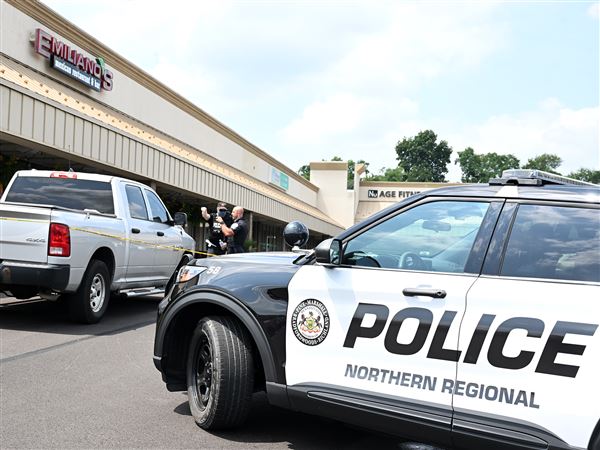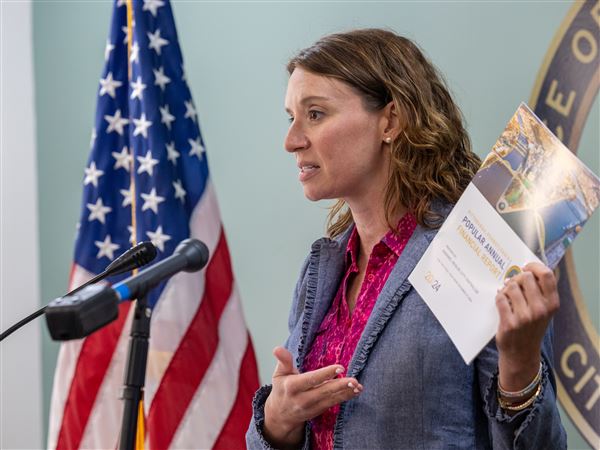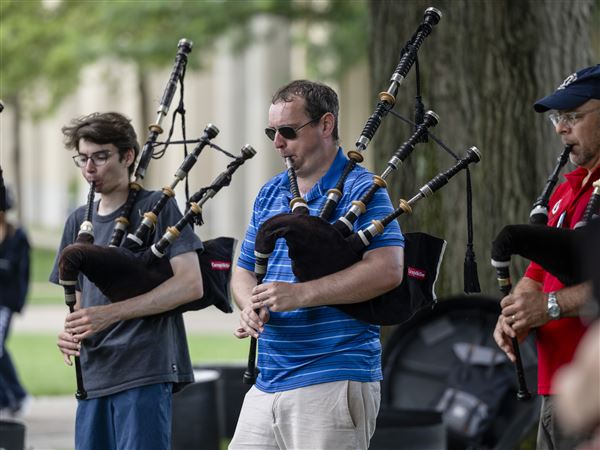HARRISBURG -- Local rules for gas drilling would be null and void under the Marcellus Shale legislation swiftly approved by a House panel on Wednesday, highlighting a key obstacle in crafting a drilling oversight measure.
The bill's party-line vote immediately drew criticism for the meeting's hasty announcement hours after a draft of the measure was posted on the General Assembly's website.
The panel approval marked the first steps that the House has taken this session toward an assessment on drillers and tougher regulations.
It also means that both the House and Senate have bills primed for quick floor votes when the General Assembly returns to session on Nov. 14.
The House GOP-drafted measure closely matches the impact fee plan outlined by Gov. Tom Corbett and the environmental protections suggested by his Marcellus Shale Advisory Commission. It also includes a provision to use royalty dollars from gas wells on state-owned land to fund environmental initiatives.
But the section drawing the loudest concerns from Democratic members of the House Finance Committee, environmental advocates and others was a provision stating that statewide rules would supersede all local ordinances regulating oil and gas operations.
Rep. Phyllis Mundy, D-Luzerne, said that would strip municipalities of their ability to protect residential areas from drilling activity.
The state's township supervisors association strongly echoed that criticism after the meeting.
"This would be intrusive on communities, on residents and on taxpayers," said David Sanko, the association's executive director.
Republicans on the panel defended the move as similar to how the state regulates construction activities. Rep. Eli Evankovich, R-Murrysville, said if the state beefs up its Oil and Gas Act provisions to address issues like excessive noise and light, localities would feel less of a need to strengthen their own rules.
His hometown of Murrysville has been crafting a drilling ordinance that would address issues including noise, traffic and use of retention ponds.
"There's still work to be done," Mr. Evankovich said, noting that he's talked to his leadership and the governor's office about clarifying that section. "But it's a good start."
Mr. Sanko disagreed, saying that the state is too large and diverse for "one-size-fits-all" rules from Harrisburg.
The provision for superseding the local rules was circulated by the Corbett administration before it was inserted into the House measure. While Mr. Corbett has been mum as the Senate has taken several steps toward approving a fee, the House committee vote drew an encouraging statement from his office.
"I applaud House Finance Committee members for moving this important measure," Mr. Corbett said. "This bill contains many of the provisions contained in our proposal, and I am pleased to see the Legislature working toward a final bill."
The Marcellus Shale Coalition, representing most of the companies active in natural gas extraction, also commended the panel. That group has urged lawmakers to create more uniformity among local drilling rules.
"The establishment of a predictable framework of heightened health, safety, and environmental protections will benefit all Pennsylvanians, particularly those residing in nearly half of the [commonwealth's] communities in the Marcellus fairway without formal zoning rules," said Kathryn Klaber, the coalition's president, in a statement.
The committee's chairman, Rep. Kerry Benninghoff, R-Centre, also spoke of standardization in defending the move toward state control of drilling, but he gave a political answer on why this measure was chosen for action over those that do not address zoning.
"This is a collection of what could be passed in both chambers," Mr. Benninghoff said.
First the measure will have to pass a House floor vote, which Rep. Jesse White, D-Cecil, predicted could prove difficult.
"I heard from a lot of my municipalities, and no one is happy," said Mr. White, whose hometown has enacted a drilling ordinance. "It's the job of local government to say, 'We have some questions.' "
He added: "Under this bill, it would be easier to drill and put a compressor station in than it would to put an addition on your garage."
Meanwhile, Senate lawmakers appear to have found some agreement on an alternative method for preventing unreasonable local regulations while still allowing those governments to retain zoning authority.
Senators involved in crafting that chamber's Marcellus bill are looking at an approach in which the state attorney general would evaluate ordinances against a set of guidelines laid out in the law, said Drew Crompton, chief of staff to Senate President Pro Tem Joe Scarnati.
That plan would be similar to rules in the state's ACRE law, under which the attorney general reviews certain ordinances governing agricultural operations.
First Published: November 3, 2011, 4:00 a.m.













